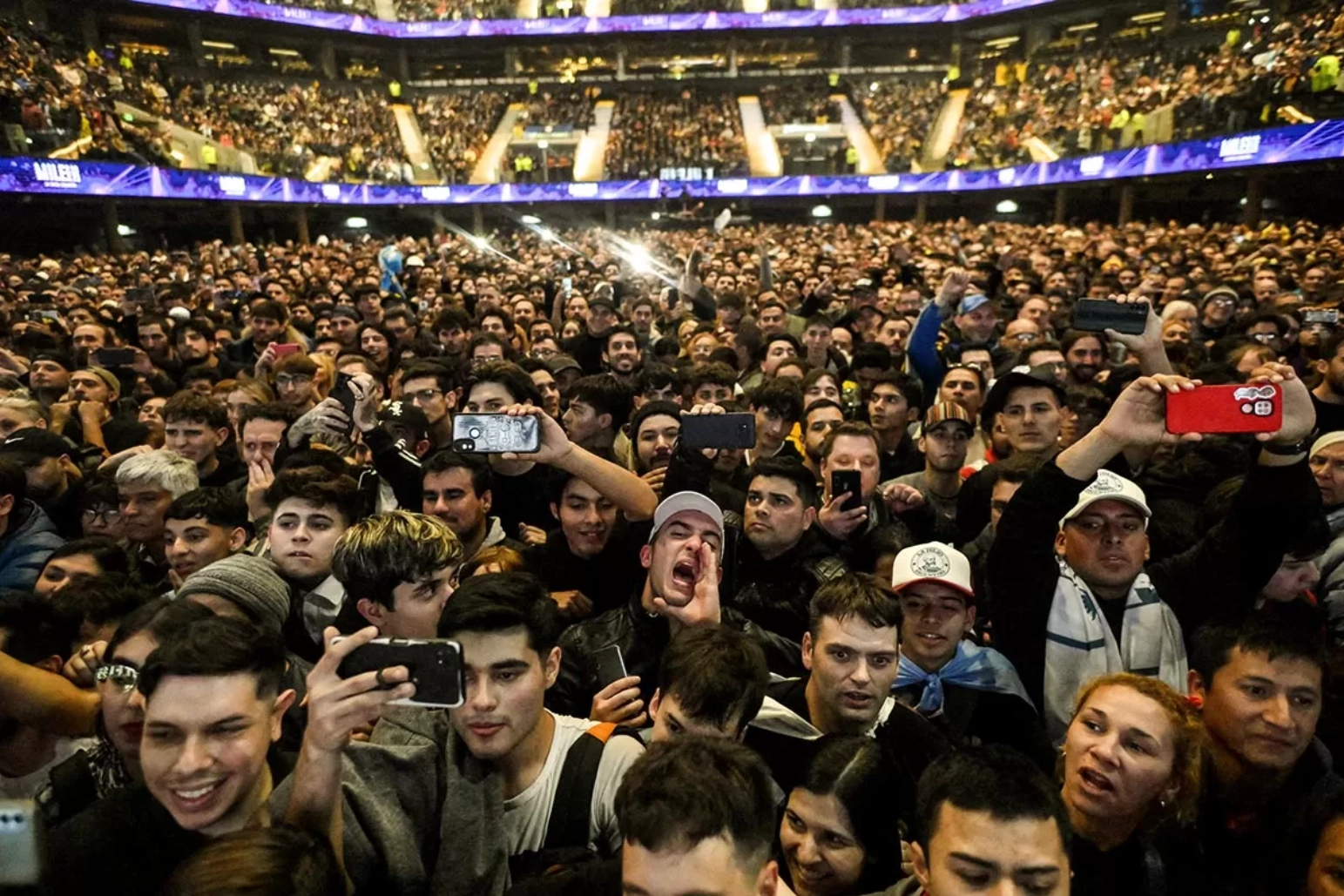A recent study by the Observatory of the Social Debt of the Argentine Catholic University, an institute that has been working for more than two decades on this regressive social issue and whose results do not differ too much from the official statistics, published that 61% of children and adolescents (between 0 and 16 years) in the country are below the poverty line. The study also shows that 59% of this population receives free food. Food insecurity among children and adolescents increased by 44% between 2010 and 2022. And that 40% of these children do not have access to piped water in their homes. This scenario of social regressivity has been increasing since 2009, relieved between 2011 and 2012, to then give way to this path to the precipice.
If we look at the statistics, we see a scenario where already in more than one generation of Argentines, and residents in the country, more than half of the population has seen their living conditions, their expectations for the future and, even worse, the expectations of their children, progressively diminish.
In this scenario, how can the election of Javier Milei be surprising? It was expected that in the open primaries, he would place third, behind the main opposition to the ruling party – Together for Change (JxC) – and the government coalition – Union for the Fatherland (UxP). Surprisingly, Milei, with no party structure or known political cast, was placed first with 31% of the votes, followed by JxC with 28.5% and UxP with 27%. I reiterate, only with his figure.
To begin to understand this result, the following should be noted: Milei did not win because of “what” he said, but because of “how” he said it.
Milei’s almost unipersonal campaign, clearly inscribed in what began to be known some years ago as the libertarian currents, was based on two elements: a proposal for dollarization, as a way to solve the structural and critical economic situation of the country, and the repudiation of the caste, symbolizing in this concept the entire Argentine political class. But all this was said loudly, with angry gestures, insults, and an absolutely derogatory disqualification of traditional politics. The “how” was more effective than “what” he said.
This rage and disqualification have interpreted, and summoned to the polls, a sector of the population that is as angry as Milei. That rage of discontent for not being able to solve their daily difficulties. That is tired of promises, but even more tired of empty slogans spouted by parties and politicians. That squirms before political speeches that seem to speak to themselves and to those who produce them. That no longer believes. Definitely, they do not believe it.
It will have to be analyzed in more detail, but it is clear after these primaries that the vote for Milei came especially from young people of popular sectors, dependent on the precarious informal economy, inhabitants of neglected neighborhoods with a deficient infrastructure and surrounded by peers, so marginalized, unequal and lacking in hope among them to the point of clearly configuring a political situation outside representative politics.
The more than unexpected result of the August 14 primaries, even for Liberty Advances, the political structure registered by Milei for these elections, which celebrated the result in a manner consistent with the surprise it caused them, found an opposition of Together for Change, which was already preparing for a resounding victory, divided and badly confronted internally, a fact that catapulted them to the second place with at least 10% to 15% less than the expected votes (and that the polls, more and more failed, predicted).
The result also left the pro-government (Kirchnerist) Union for the Fatherland, which, although it did not expect, barring a miracle, to win the PASO, did not expect to come in third – to the point of not entering the October run-off if these positions were repeated – nor to obtain a percentage of votes clearly lower than that predicted by the polls.
Rare in Argentine electoral politics, a three-thirds path to the presidential elections was left. But three-thirds mutually reject each other, two of which are not willing, as it usually happens in electoral systems of the region, to make certain agreements, to transfer preferences and votes in order to defeat one of them. The three-thirds of these PASO on the way to October are non-negotiable because they clearly represent three different and antagonistic positions of the electoral expectations of the Argentines.
What is new is Milei’s third. He has two strengths that would give him, according to the first focus groups, more advantages in October if the current outlook and expectations are maintained. The first one is that he won surprisingly, and that implies an open road for his voters, for the voters of parties that were left out in October, and, above all, for those who did not vote due to disenchantment and anger. The second one is the fact of having hit the key and having interpreted social sectors, I reiterate, angry and dissatisfied, to the point that most of them would not have voted if they had not had the Milei option.
Therefore, let it be clear: Milei won because of the way he said certain subjects, more than because of the subjects he said.
*Translated by Janaína Ruviaro da Silva from the original in Spanish.












